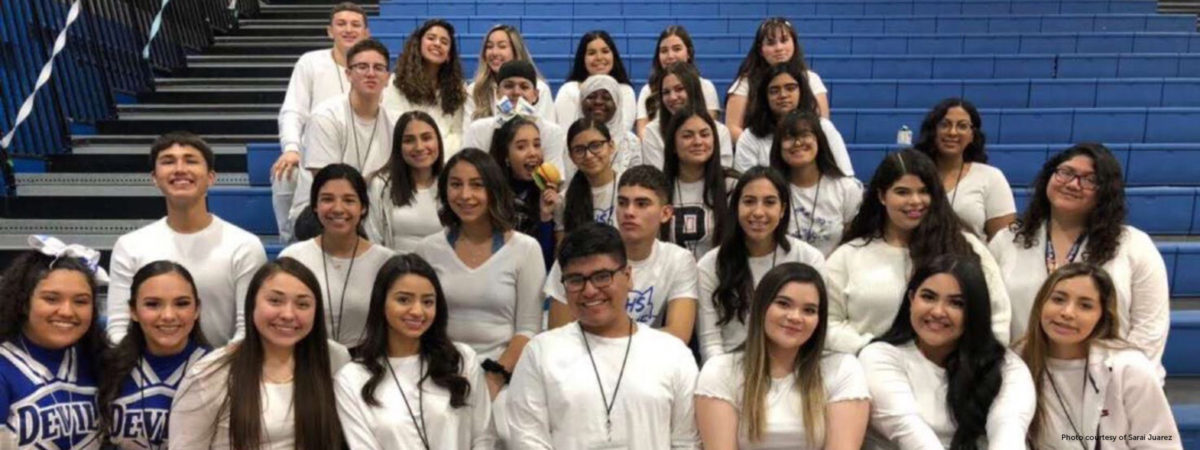
June 7, 2021 | By Ricky Echanove and Sarai Juarez
How did you first hear about this project, and why did you decide to get involved?
Ricky: Our principal, Mr. Torres, reached out to us individually, and to the student council. After hearing about the opportunity I was really intrigued because I want to improve my writing and help others in our school do the same.
Sarai: I also heard about the opportunity from our student council instructor. I wanted to join because writing is something that I’m passionate about. I feel like the people around me, especially my friend group, enjoy writing and use writing as an outlet. I really wanted to see what I could do, as a student, to help more students experience the power of writing.
Why is writing an important subject for your district to address?
Sarai: While a lot of students I know really enjoy writing, there is also a large number of students who probably don’t like to write as much. I feel like within our district and school there aren’t a lot of outlets for writing, especially creative writing, outside of our English classes.
Ricky: I agree that writing allows for creative expression. I don’t find myself writing too often, but when I do write it’s a great outlet for me.
What have you liked about the project so far?
Ricky: I enjoy the perspectives and input that everybody on the team—including teachers, researchers, and community members —has about writing. Their knowledge helps me build my own understanding about what’s going on in our district.
Sarai: I agree. I’ve never been in such close proximity to adults who genuinely want to make a change, especially in regards to writing. And I’ve never really been approached, and I don’t think other students have either, about the intersection of poverty and race, and how that may affect our education. We’ve never been approached to really explore or see the structure behind these issues. For me, that’s been one of the most eye-opening things, especially what the teachers and community members have to say, because I think they have a perspective that a lot of students may not realize.
What do you think you and other students can contribute that other people involved can’t contribute? Why should other students get involved in these types of projects?
Ricky: We have that first-hand experience [with high school writing] so we know what works. We’re just better “guinea pigs,” for lack of a better phrase, to react to what the group comes up with to help better express ourselves and help other students do so.
Sarai: I agree. And our student experiences are all different; we have different families, living situations, and cultures. So it’s important for these different students to have a chance to share their own experiences and connections to what’s happening in our schools.
What do you hope will happen as a result of this work?
Sarai: I would like to see more opportunities for writing to be explored at our school, whether just within our English classes or in other classes, too. Even if students don’t love writing, I hope to give them the ability to become experts in writing because I think it’s a really important subject to know and to be able to be good at.
Ricky: Through this project, I hope to first better my understanding of writing and my ability to express myself through writing. Then I hope to influence and inspire others to do the same so we can build a better community with opportunities for self-expression.
Learn more about the Center for Inclusive Innovation.
By Sharin Jacob and Quinn Burke
By Dr. Kyle Dunbar and Katie Wilczak